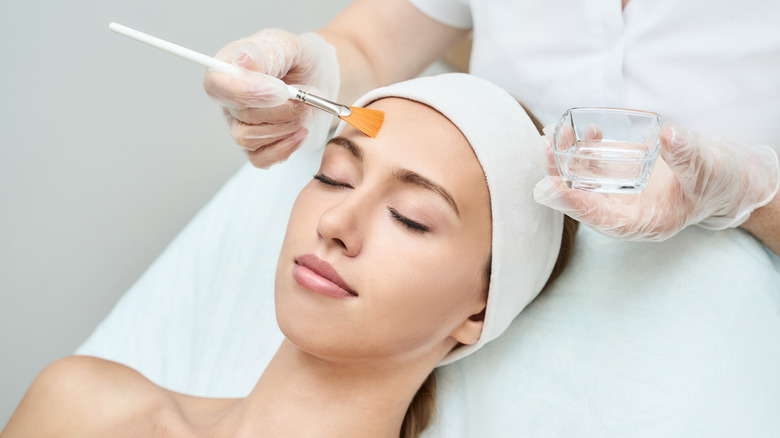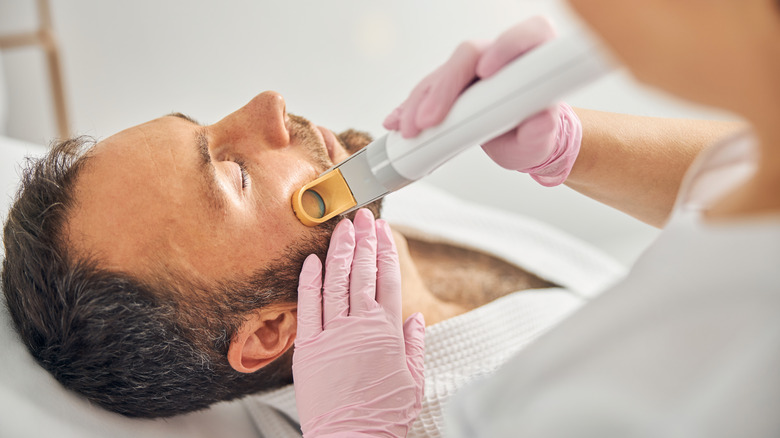Aesthetician Vs. Esthetician: Which Specialist Do You Need?
There are different levels when it comes to mastering skincare. Ranging from at-home masks to medical-grade facials, sometimes navigating the world of products and treatments can be confusing. Thankfully, there are plenty of trained professionals out there to help. If you're wondering what they're called, you're not the only one who's confused. The difference between an aesthetician and an esthetician are slightly different. Just like the spelling, there is only one main difference between the two job titles.
While the difference between an aesthetician and an esthetician are not all that different, you'll want to know the difference before your next facial. Basically, one is a medical professional while the other is purely cosmetic, according to the Nuvani Institute. To put it simply, one is trained to use needles, while the other is not.
That might not seem like a huge difference, but it is when you're considering which treatment you'd like to get. Here's a complete breakdown of the two, so you sound like a professional when you book your next appointment.
Aestheticians' roles are more medical than are estheticians'
If you walk into a doctor's office to get botox, you might see a medical aesthetician there helping the doctor. If you want a facial, you'd go to an esthetician. According to EstheticianEDU, a medical aesthetician can work beside a doctor for pre- and post-procedure care, and they almost always have some sort of medical training in a hospital or laser treatment facility. However, they are not the ones doing the procedure.
The difference between the two job roles is slight. The big difference comes with how the aesthetician decides to specialize their training. According to the Nuvani Institute, esthetician training teaches you to do facials, while medical aestheticians can take the training even further in certain areas, like laser treatments or tattoo removal. The two terms are almost always used interchangeably, so it can get a little confusing. If there's not the term "medical" in front of the name, then don't pay too much attention to the a- or e- that the word starts with.
Neither estheticians nor aestheticians are medical professionals
It's important to note that no matter how you spell the word, aestheticians and estheticians are not medical professionals (via Very Well Health). The career entails doing cosmetic procedures like microdermabrasion, facials, chemical peels, and light therapy, as noted by Very Well Health.
Aestheticians (or estheticians) can help determine your skin type and maintain healthy skin, but it's up to a dermatologist to actually diagnose you and prescribe medication, if needed (via Skin Pen). The two often work hand-in-hand, but neither can do the others' job.
If you're looking for a place to start when it comes to skin treatments, head to the dermatologist first. From there, you can start getting regular treatments to maintain your skin with an esthetician. Heck, the dermatologist might even recommend an esthetician to you and recommend treatments for your skin type. The two are a match made in skincare heaven.


